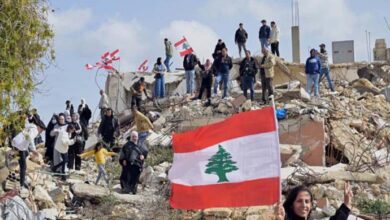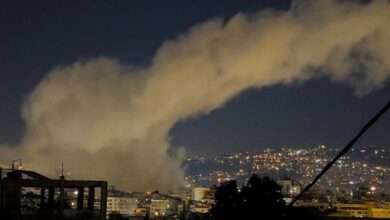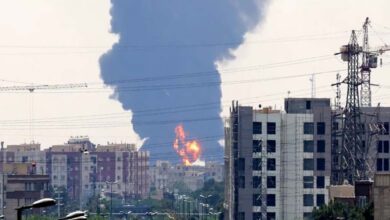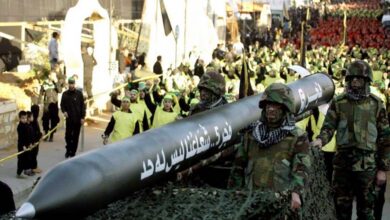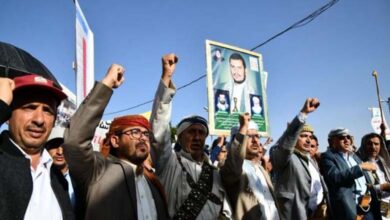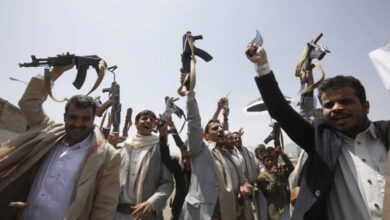Israel Prepares Logistically and Militarily for War with Hezbollah
Israeli domestic leadership reveals a plan including the construction of underground shelters, provision of food supplies, and beds in anticipation of a war outbreak with the Lebanese Shiite group at any moment
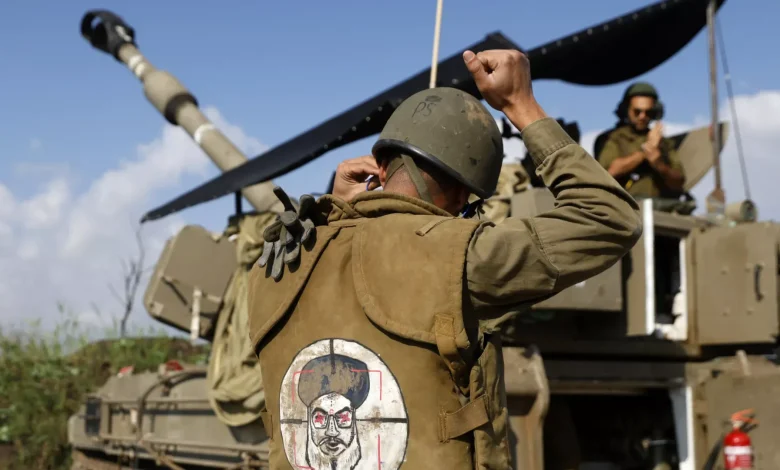
Israeli media reported that the domestic leadership is preparing shelters in underground parking lots for civilians in case of a full-scale war with Hezbollah, adding that around 80,000 boxes of food supplies and beds have been stocked, citing the commander of the northern region who indicated emergency plans have been drawn up for an attack in Lebanon.
According to the same source, the Israeli army has begun preparing for a possible war with Hezbollah in northern Israel and launched an operation to protect tens of thousands of Israelis who lack shelters or safe rooms.
The domestic leadership has utilized the past few weeks to promote an emergency program aimed at building shelters for residents living in old buildings without protected spaces, where the time to reach a public shelter is longer than the warning time for missile attacks, which is about a minute on average in cities like Haifa.
Under the plan formulated and funded over the past two months, dozens of collective shelters have been established, particularly in underground parking lots, where residents without protection will be directed. They will remain there for relatively short periods, ranging from a few hours to a few days as needed.
The same sources indicated that the Israeli Defense Institution has completed a significant procurement process, including tenders to provide logistical solutions for implementing the plan if a war against Hezbollah breaks out rapidly.
Among these logistical services are cleaning services for these complexes and thousands of parcels of non-perishable food and water.
In the scenario of a full-scale war against the Iranian-backed Lebanese Shiite group, the domestic leadership will also oversee the transportation of citizens, including the elderly and disabled.
In the past, the Defense Institution discussed the possibility of setting up emergency tents for unprotected residents in northern cities, in safe and distant areas like the Negev desert, but this plan was dropped partly because it is understandable that residents would prefer to stay relatively close to their homes.
Since many hotels have been full since last October with people evacuated from war zones in the western Negev and the Galilee, the possibility of accommodating unprotected residents in northern hotels seems unlikely.
A military official familiar with the operation said, “So far, we’ve purchased about 80,000 boxes of food supplies for the program… Transport to hotels is irrelevant because there may be 10,000 remaining available rooms in Israel, barely enough for a quarter of Safed’s population.”
He added, “We’ve enhanced protection solutions in cities near the border like Nahariya and Kiryat Shmona; we’re not currently deploying thousands of mobile shelters in the old streets of Kiryat Ata or Acre because it’s costly and irrelevant.”
The program also includes temporary accommodation facilities and beds for residents’ comfort. The domestic leadership emphasized that the plan must be addressed at the national level and must also include similar solutions for unprotected residents in central Israel.
Over the past four months, the Israeli army has realized that Hezbollah‘s arsenal also includes many precision-guided missiles, some of which have flat trajectories like long-range anti-tank missiles that have reached about 10 kilometers from the border area to the summit of Mount Meron.
Some of these missiles do not require continuous line of sight between the launch platform and the target, and Hezbollah‘s precision-guided missiles have managed to bypass hills and strike distant targets accurately in Kiryat Shmona and its surroundings.
Additionally, since the start of the war, dozens of suicide drones have been launched from Lebanon into Israel. Most have been intercepted, but some have never been discovered or exploded on Israeli territory.
The domestic leadership has established engineering specifications as part of the plan, outlining how any underground parking lot can be part of a collective shelter. The Israeli army will also provide information about shelters to citizens who will then decide whether they want to move to them.
The commander of the northern region of the Israeli army, Major General Uri Gordin, met last Saturday with security coordinators from the Matashar and Majd al-Krum localities in the north. He told them, “We’re preparing emergency plans to attack Lebanon. Our commitment is to change the security situation so that residents can return home.”
Hezbollah announced Sunday it had fired dozens of rockets at a town in northern Israel, following the deaths of five people, including three of its members, in Israeli airstrikes in southern Lebanon.
Since the start of the war between Israel and the Islamic Resistance Movement (Hamas) in the Gaza Strip on October 7 last year, there has been almost daily exchange of fire between the Israeli army and the Lebanese Hezbollah, an ally of the Palestinian movement.
The party said in a statement, “Islamic resistance bombed at 9:15 a.m. Sunday… the colony of Meron with dozens of Katyusha rockets.” Meron houses an important military base for monitoring air traffic that the allied party of Iran has targeted several times since the beginning of the year.
The party said Sunday’s rocket fire was “in response to the enemy’s attacks on southern villages… and civilian homes, the latest being the attack on the town of Khirbet Salim.”
Lebanon’s official National News Agency reported Saturday that four people from the same family as well as a fifth person were killed in an Israeli airstrike on a house in Khirbet Salim, near the border with the Hebrew state.
Hezbollah mourned three of its members in this strike, including a man and his two sons. The agency confirmed the death of a woman and another person in the strike.
Meanwhile, the Israeli army announced Sunday that it had “observed about 35 rocket launch operations from Lebanon toward Israeli territory and intercepted several of them,” adding in a statement that the Israeli Air Force targeted during the night “infrastructures” belonging to Hezbollah, including a “military building in Khirbet Salim where Hezbollah terrorists were identified.”
Since the start of the exchange of fire between Hezbollah and the Israeli army, at least 312 people have been killed, most of them Hezbollah fighters, along with 56 civilians in Lebanon, according to party data and Lebanese official sources. On the Israeli side, ten soldiers and seven civilians have been killed, according to official figures. The escalation has also led to the displacement of tens of thousands of people in border areas on both sides.


